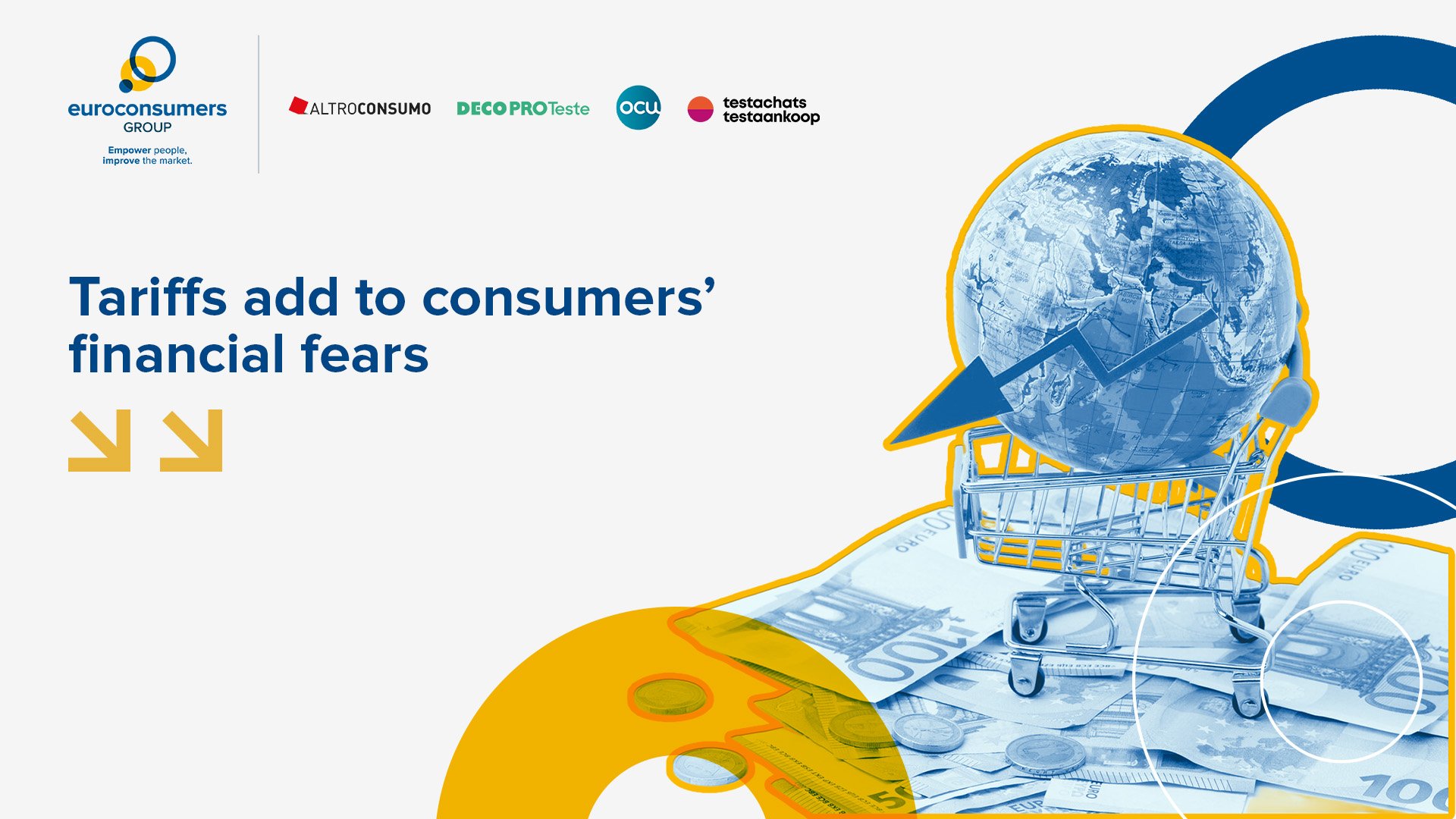
Tariffs add to consumers’ financial fears
Euroconsumers took the consumer temperature on household finances and upcoming tariffs and found widespread worries
Read More


The Common Agricultural Policy (CAP) has been a mainstay of the single market since 1962. Described by the EU as a ‘partnership between agriculture and society’, its substantial goals include financially supporting farmers so they can produce a stable supply of affordable food, tackling climate change by managing farmland more sustainably, and preserving natural landscapes and a good standard of living for rural economies.
Such ambitious aims cost the EU about a third of its entire budget and outcomes are watched carefully by national and regional policy makers, farmers, retailers and environmental campaigners to see if the subsidies invested in the sector are delivering.
This has come into sharp focus recently thanks to supply and trade disruptions which have seen food prices for consumers rocket, leaving many struggling to pay the grocery bill and cutting back.
On the supply side, farmers have put what they call unfair demands of the CAP under the spotlight with protests about what they see as unfair competition from agricultural importers who don’t need to meet the high European standards on, for example, pesticide use or animal welfare.
Last year, after major demonstrations in Brussels and other national capitals, some key environmental and climate provisions of the CAP were quickly cut in response as part of a ‘simplification’ process.
Unhappy producers and consumers struggling to pay their grocery bills suggests the CAP is falling short on delivering some of its key tenets.
And so, with a key revision of the CAP on the horizon, Euroconsumers’ research team have been a key part of a major new survey from BEUC and eight of its members to find out what consumers think of the CAP.
The study called ‘The Common Agricultural Policy: What consumers want’ published in May surveyed around 8,000 consumers in eight countries to find out what they knew about the CAP and what they wanted it to deliver in the future.
When it comes to agriculture and food production policy, hearing consumers’ priorities and expectations is absolutely vital. The CAP encompasses so many critical elements of consumers’ lives, from the price they pay for food, to the environment and climate they live in and to the welfare of the animals in their country.
The survey found that while generally most consumers have a positive view of what the farming sector is delivering, it is not fully lined up with their own social and environmental concerns.
The CAP is not just any policy, it is a cornerstone of the EU and given the size of its budget, the Commission must take this opportunity to heed consumers’ concerns in its future revision, and empower consumers to be an active part of a sustainable, fair market.
About the survey
Consumers were surveyed in Austria, France, Germany, Italy, Poland, Portugal, Slovenia and Spain. The field work took place between 21 January 2025 and 10 February 2025, polling around 1,000 respondents per country. The sample was representative of the national population. It is a joint effort between BEUC, ICRT, and nine consumer organisations: Altroconsumo (IT), Arbeiterkammer (AT), Consommation Logement Cadre de Vie (FR), Deco Proteste (PT), Federación de Consumidores y Usuarios (ES), Federacja Konsumentów (PL), Organización de consumidores y Usuarios (ES), UFC – Que Choisir (FR), Verbraucherzentrale Bundesverband (DE), Verein für Konsumenteninformation (AT), and Zveza potrošnikov Slovenije (SL). Euroconsumers contributed to developing the questionnaire, carried out the data collection and statistical analysis.